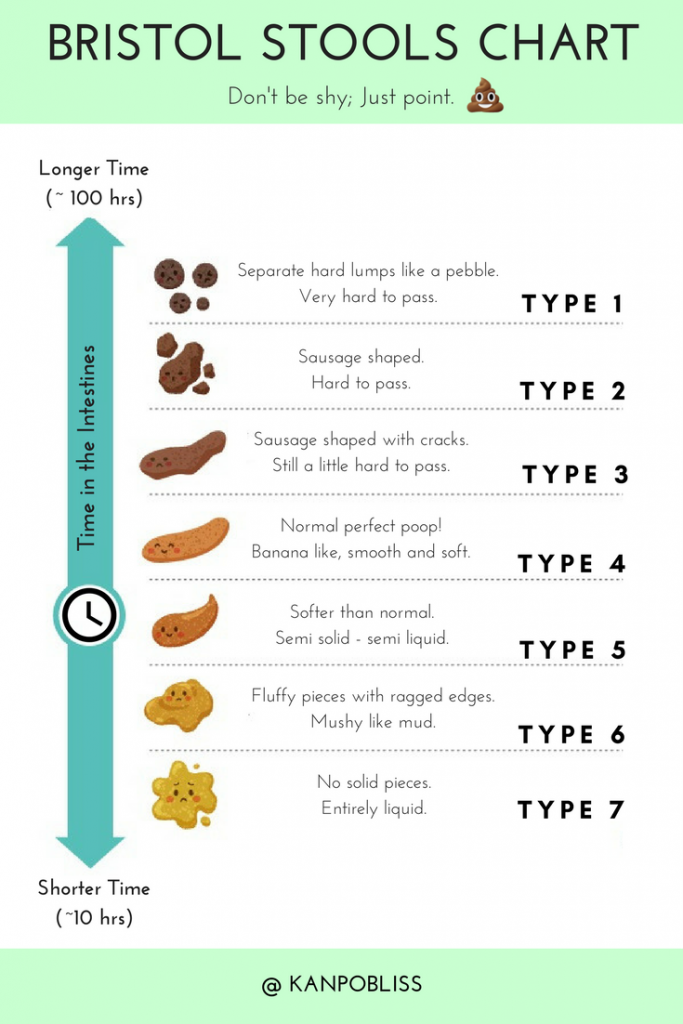Why is my physician so interested in my poop?
Before you start reading, make sure you’re not eating anything as today’s topic may not be the most glamorous topic. It’s about Business No.2, the poop.
Ready?
When you visit a Traditional Chinese Medicine (TCM) clinic to consult a physician or an acupuncturist, they’ll most likely ask you many questions. After the mini "interrogation" session of your health and lifestyle habits, your physician will look at your tongue and take your pulse.
In TCM,there’s usually 10 areas of questioning and asking about poop is only one of them.
There’s even a song called “Ask 10 things”by TCM Physician Zhang Zhong Jing who was one of the most eminent Chinese physicians during the later years of the Han dynasty.
十问歌
By: Zhang Zhong Jing
问诊首当问一般,一般问清问有关。
一问寒热二问汗,三问头身四问便。
五问饮食六胸腹,七聋八渴俱当辨,
九问旧病十问因,再将诊疗经过参。
个人家族当问遍,妇女经带并胎产。
小儿传染接种史,疹痘惊疳嗜食偏。
It roughly translates to asking the following:
Chills and Fever
Sweating
Head and Body
Stools and Urine
Diet
Throax & Abdomen
Ears (hearing)
Thirst
Medical history
Cause of illness
+ For ladies: Gynecological Conditions,Pregnancy and Childbirth (where appropriate).
You may find that questions about poop and pee are unrelated. For example, when someone has insomnia or knee pain, it can be difficult to understand how the quality of your poop can be related to your sleep or pain.
However, asking these questions by elimination method can indicate how your digestive system (and other organs) work. For instance, constipation will indicate that there is heat accumulation which might be affecting uprise of Yang which causes your insomnia. Diarrhoea with weak knees and dull pain in the lower back indicates that your Kidneyis deficiency. All these clues will help the physicians to pinpoint the root cause and prescribe the correct medication and acupuncture points.
What is normal poop?
Other than just asking whether you’ve pooped or not, the physician usually will ask you about your frequency, shape, colour, smell and feeling during passing motion.
FREQUENCY
Normally, you will be able to pass motion once or twice per day without straining. Everyone has their own pooping schedules so if you have been passing motion every 2 days but your friend goes everyday without fail, it’s ok! Don’t get too stressed over it because stress will also lead to irregular bowel movement.
No poop for more than 3 days = Constipation
Watery motion for more than 3 times a day = Diarrhoea
If you are stressed out and it's causing constipation, you can speak to a professional therapist online like BetterHelp. Did you know they are world largest online e-counselling platform, so you can choose your favourite therapist and ask them about your stress issues everywhere, anywhere. No more waiting time!
SHAPE
Banana shape is the best. Usually, the poop should neither be too hard nor too soft, and should not have a foul odor. There also should be no pus, blood, mucus or undigested food in it.
COLOUR
Light Brown
Perfect Poop. The brown comes from the breakdown of bile.Green
Could be that you have eaten a lot of green leafy vegetables, or had too much green food colouring. This greenish/blueish poop is also common in infants. See this cute chart for baby’s poop “Colour Wheel Chart” by Bump.Yellow
Or dark yellow can be due to Heat or Spleen deficiency. It can also be caused by liver (cirrhosis), gallbladder, pancreas or celiac illness.Pale
Means that there is Cold accumulation in the Large Intestine. Or it can be due to bile duct obstruction hence the lack of brown colour.Black
Or very dark stools indicates Blood Stagnation. This blood can be coming from your Stomach (ulcer or cancer which is rare). Some vitamins and supplements such as Iron and bismuth subsalicylate (active ingredient that's used in Pepto-Bismol, an antacid) can cause your poop to turn black.Blood stained
Indicates a Heat condition. It is important to check the colour of the blood.Bright red = Due to piles/hemorrhoid when the bleeding is from a blood vessel cut near the opening. Usually can see when you wipe with tissue.
Dark red = Bleeding from the upper gastrointestinal tract ie the stomach or small intestine. Please consult a doctor and confirm with an Fecal Occult Blood Test as soon as possible.
Note that food colouring or dark pigmented food such as beetroot and red dragonfruit can cause it to become purplish red.
SMELL
No odor indicates Cold or Spleen Deficiency. (All poop smell but it shouldn't be very foul)
Foul odor, especially if urgent indicates Heat or Damp Heat in the intestines.
Lots of smelly gas can be due to the food you ate (gas producers such as cabbage, beans) or Liver Qi stagnation.
FEEL
Pain before pooping indicates Liver qi stagnation. Location of pain usually not at one spot.
Pain before pooping (and not relieved after passing) indicates Cold/ Yang deficiency in the Large Intestine. Usually this pain is alleviated when you put something warm (wam cup of water, hot towel) on your stomach.
Pooping with pain but if the pain is relieved after passing motion, it’s probably due to food retention.
Pain after pooping can be due to Spleen Qi deficiency.
Urgent or burning sensation in the anus indicates Heat accumulation.
Incomplete evacuation indicates Qi deficiency.
For persistent pain or any long term change in the poop (for example shape becomes thinner and thinner) or alternating constipation & diarrhoea, do consult a doctor.
But I feel shy talking about my poop...
Don’t worry, so am I. Most of us are reluctant to talk about the shape, size and all things poopy. And when this happen, some people may not share all the details, causing a misguided treatment (especially in TCM).
Let Bristol Stools Scale help you.
That is why brilliant doctors at the Bristol Royal Infirmary Hospital in Bristol, England devised a handy chart called the Bristol Stool Scale. This self-diagnostic chart helps patients discuss their bowel habits without becoming embarrassed. It is now being used all worldwide as a measuring tool for bowel and digestive health.
When I was in interning in a hospital in Beijing, we had this Bristol Stool Scale stuck on the table and just asked patients to point at picture which best described their poop. It saved time and embarrassment for both the patient and us!
After determining which type they belong to, now it’s time to TCM pattern differentiation.
7 types of TCM Constipation
In TCM, there are 7 types of Constipation. 3 excess types which includes Heat, Cold and Qi stagnation. 4 deficient types which includes, Qi, Blood, Yin, Yang deficiency. Below are the common symptoms that are associated with each of the different type.
EXCESS
Heat in Stomach & Intestines: Sometimes with pain, foul breath, dry mouth.
Cold in Stomach & Intestines: Sharp pain, worse when you press the stomach, better with warmth.
Qi stagnation: Feel like pooping but business feels incomplete. Easily bloated, often pass gas. Most commonly associated with stress.
DEFICIENT
Qi deficiency: May or may not be constipated. Feel like pooping but feel that evacuation is incomplete. Usually have to push very hard until you sweat or have shortness of breath.
Blood deficiency: Common in elderly or women postpartum. May have pale complexion, dizziness, palpitation.
Yin deficiency: Like a rabbit’s poop. Usually experience sweating at night and flushed cheeks.
Yang deficiency: May or may not be constipated. Usually feel cold all the time, lower back feels cold and sore and urinate very often.
6 types of TCM Diarrhoea
In TCM, there are 3 acute types and 3 chronic types.
Diarrhoea is usually due to Spleen deficiency where it is unable to clear the Dampness (aka water) in the intestines, causing excess fluids in the poop. Kidney deficiency is also involved in chronic cases (more than 3 weeks),especially in the elderly.
But! If your diarrhoea is due to food poisoning, it is best to let the toxins out of your system instead of taking charcoal pills or any kind anti-diarrhoea medication. Make sure you sip isotonic sports drinks throughout the day to keep your electrolytes in balance.
ACUTE
Damp Cold: Poop is pale yellow and do not have a foul odor. You might experience bland taste in the mouth.
Damp Heat: Usually start with abdominal pain followed by diarrhea, and pass formless and foul odor stools. Other symptoms include growling sound in stomach and a burning sensation in the anus.
Food retention: Foul smelling poop with undigested food, burp with sour taste in the mouth.
CHRONIC
Disharmony between Liver and Spleen: Usually will have stomach pain following emotional disturbances. Other symptoms include fullness in the chest and rib sides, belching, a bitter taste in the mouth.
Spleen Yang deficiency: Usually have softer stools and experience fatigue especially in the arms and legs and have poor appetite.
Kidney Yang deficiency: Also known as “Cock Crow’s diarrhoea” which happens early in the morning around 4am, accompanied by cold and soreness on the lower back area.
Didn’t expect TCM will have so many different types did you?
That is exactly why your TCM physician is so interested in your poop! So they can nail down to the root cause of your constipation or diarrhoea.
When you are healthy, your poop will be in good shape. When you can pass good poop, it means that your body (blood, internal organs, skin) are all cleaned out, leaving your immunity at its optimum and leaving you happy like a bird.
You are the designer of your poop.
Let’s start eating healthy and design the best poop today.


